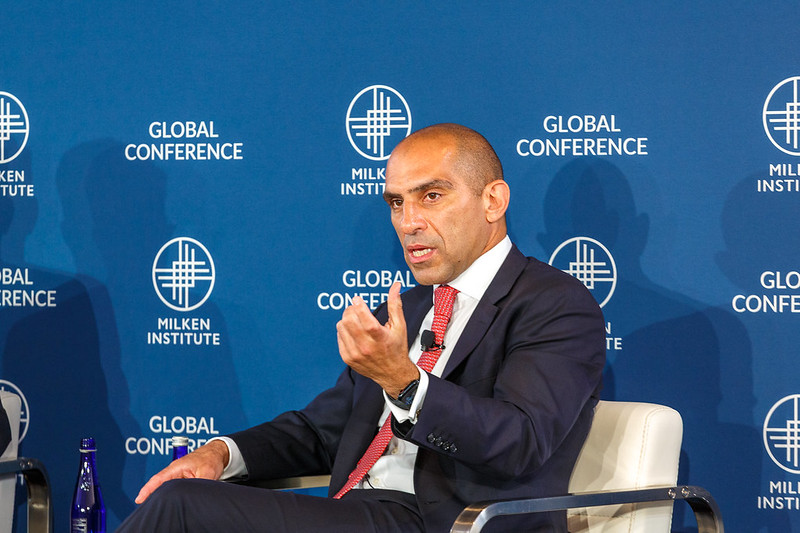
Consequences for Political Betting of Kalshi’s Decision to Register with the CFTC
By Pratik Chougule and Solomon Sia
Branding itself as the “first federally regulated exchange,” Kalshi has tried to hew as closely as possible to the CFTC’s guidelines.
As Kalshi CEO Tarek Mansour has explained, the company’s regulatory posture as a DCM allows it to be “uniquely-positioned” to “build a full-scale exchange—one that can attract…institutions, and brokers, and market-makers.”
An important consequence of this regulatory strategy is that Kalshi is limited in the political markets it can provide.
Kalshi sees election contracts, which it characterizes as the “holy grail of events trading,” as being “core” to its mission and identity.
Yet while some of Kalshi’s markets are directly related to politics, most are in tangential areas such as economics, finance, law, pandemics, and transportation. Of the 17 markets on Kalshi that have ever reached trading volume greater than 500,000, none were on political as opposed to financial or economic topics.
Neither Kalshi’s engagement with the CFTC, nor the high-profile comments that were submitted to the agency on its behalf, have convinced the Commission to grant Kalshi approval to offer election markets.
In the absence of CFTC approval for election markets, Kalshi has struggled to determine the types of political markets it is permitted to offer.
Amid this ambiguity, Kalshi has chosen to refrain from offering markets not only on elections, but also on a wide variety of markets on political questions generally that are generating interest on other sites.
Seeing little prospect for liberalization under CFTC Chairman Rostin Behnam, Kalshi has scaled back efforts to influence the policy community.
Along with other layoffs, Kalshi has not renewed contracts for certain political consultants and has not followed through on some of its plans to engage Washington-based think-tanks in an effort to enlist support for election markets.
Regarding the CFTC’s current review of Kalshi’s election contracts and the associated public comment period, Mansour announced on June 27 that Kalshi is “not going to spend a ton of time repeating an advocacy campaign for the same matter.”
Kalshi’s ability to contribute to the broader prediction market community has been constrained without permission to offer election markets and other political lines. Although Kalshi is focused on markets in the financial and economic spaces, U.S. election markets tend to generate particular interest among traders and political influencers.
British gamblers, as an example, wager more money on American elections than those in their own country.
Superforecasters also have a particular interest in U.S. election markets, as they offer regularly-scheduled opportunities to train and build credibility and confidence in their long-term political forecasting methods.
This interest in U.S. elections drives revenue and social currency for prediction markets and political betting more generally.
Kalshi’s attempts to increase volume and liquidity in its political markets with generous incentives to traders are yielding limited success. The three-fold growth in trading volume Kalshi has seen from 2021 to 2023 has come disproportionately from its daily NASDAQ-100 and S&P 500 markets, which account for about a third of all volume on the site. A relatively small number of users, some working for the company, still account for a disproportionate amount of activity on its political order books. This weakens Kalshi’s arguments to regulators about the ability of its political contracts to serve hedging and price-basing functions.
Notwithstanding the restrictions associated with operating as a DCM, PredictIt executives see this as a promising path forward in the current regulatory landscape. They are seeking to establish a DCM called PredictIt Exchange, which would operate separately from PredictIt.
Whether PredictIt Exchange’s DCM application, which was filed in October 2021 and is substantially complete, will be approved by the CFTC remains to be seen.
Nor is it clear what types of markets PredictIt Exchange would be permitted to offer as a DCM. In a note to users, PredictIt maintains that the effort is part of a plan to “offer new election markets for the current political season.” Yet PredictIt CEO John Phillips has claimed in a public interview that PredictIt Exchange would not be able to offer election markets due to CFTC precedents.
Pratik Chougule is the executive director of the Coalition for Political Forecasting. Solomon Sia is a board member of the Coalition for Political Forecasting. This post is an excerpt of the report, “Political Betting Regulation in the United States: Pathways to Liberalization.” Citations are included in the original report.
